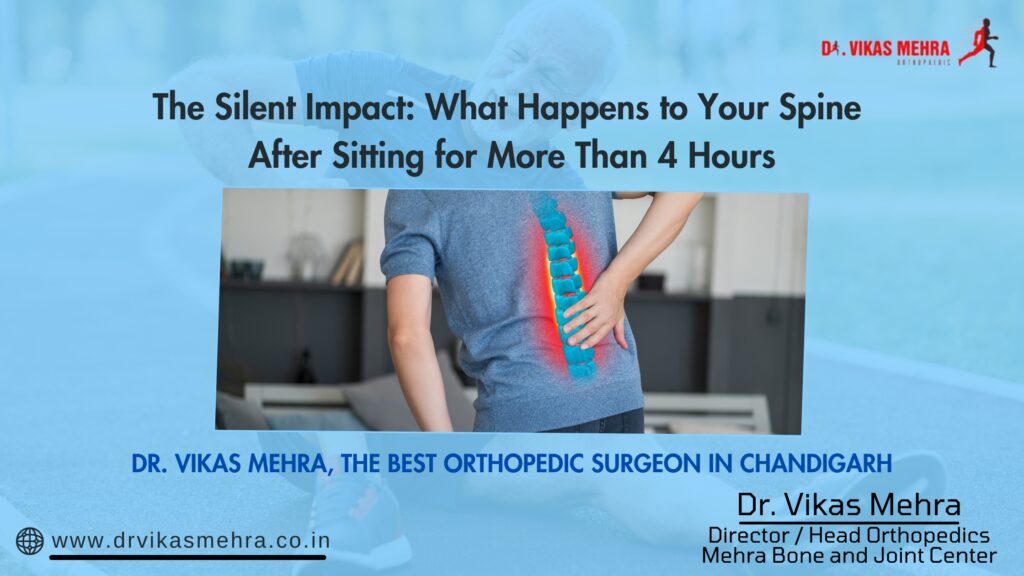The Silent Impact: What Happens to Your Spine After Sitting for More Than 4 Hours
In our fast-paced, technology-driven world, sitting has become the new normal for many. Whether it’s for work, leisure, or commuting, the average person spends a significant portion of their day seated. However, what often goes unnoticed are the subtle yet profound effects prolonged sitting can have on our spine.
To shed light on this critical issue, Dr. Vikas Mehra, an esteemed orthopedic expert, unveils the hidden impact that extended sitting can have on our spinal health.
The Toll on Your Spin
Sitting for prolonged periods exerts tremendous pressure on our spine. The natural curvature of the spine, designed for movement and support, undergoes significant strain when we remain sedentary. Here’s what occurs when you spend more than 4 hours in a seated position:
1. Postural Stress:
Sitting for extended periods leads to poor posture. The lumbar spine, in particular, bears the brunt of this as the natural curve flattens, causing discomfort and pain.
2. Reduced Spinal Mobility:
The lack of movement stiffens the spine. Over time, this can lead to reduced flexibility, making it harder to perform regular activities without experiencing discomfort.
3. Muscle Degeneration:
Certain muscles, like the glutes and abs, become weaker due to prolonged disuse. This imbalance can contribute to back pain and further exacerbate spinal issues.
Combatting the Effects
Dr. Vikas Mehra emphasizes that it’s crucial to break the cycle of prolonged sitting to preserve spinal health.
1. Take Regular Breaks:
Stand up, stretch, and move around every 30 minutes to alleviate pressure on your spine.
2. Ergonomic Support:
Invest in ergonomic chairs and desks that promote proper posture and provide lumbar support.
3. Exercise:
Engage in activities that strengthen core muscles and improve spinal flexibility, such as yoga, Pilates, or regular stretching routines.
4. Mindful Posture:
Consciously maintain proper posture while sitting by aligning your ears, shoulders, and hips.
Dr. Mehra's Insights
Dr. Vikas Mehra, renowned for his expertise in orthopedics, underlines the significance of understanding the consequences of prolonged sitting on spinal health. “Our spine is the pillar of our body’s stability and mobility. Prolonged sitting can silently erode its strength, leading to chronic issues. It’s imperative to integrate movement into our daily routines to mitigate these effects.
Conclusion
Addressing the concern of prolonged sitting and its impact on our spinal health is paramount in today’s sedentary lifestyle. Dr. Vikas Mehra, renowned as the best back pain doctor in Chandigarh, offers invaluable insights that serve as a wake-up call, urging individuals to prioritize their spinal well-being. His advice emphasizes the necessity of integrating movement and ergonomic practices into daily routines. By taking proactive measures guided by his expertise, we can effectively safeguard our spine’s health, ensuring a life filled with mobility and comfort.


